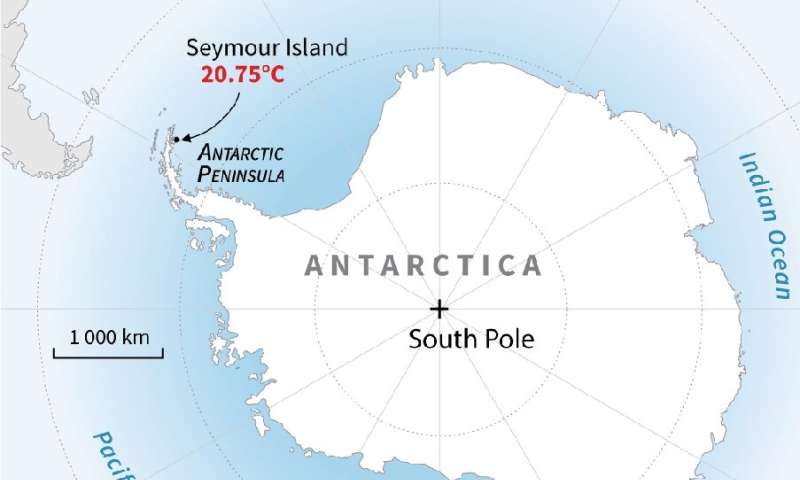A heat wave melted 20% of an Antarctic island's snow in only 9 days


A heat wave this month in Antarctica sent temperatures soaring into the mid- to high-60s across northern portions of the normally frigid continent.
Surprisingly, the warmth melted about 20% of an Antarctic island's snow in only nine days, according to newly released images from NASA, leaving behind ponds of melted water where the snow had been.
"I haven’t seen melt ponds develop this quickly in Antarctica," said Mauri Pelto, a glaciologist at Nichols College in Massachusetts, in a statement. “You see these kinds of melt events in Alaska and Greenland, but not usually in Antarctica.”
Pelto said that during the heat wave, which peaked from Feb. 6 to 11, snowpack on Eagle Island melted 4 inches. This means that about 20% of seasonal snow in the region melted in this one event on Eagle Island, Pelto said.
Bye-bye iceberg: Iceberg twice the size of Washington, D.C., breaks off Pine Island glacier in Antarctica
He added that such rapid melting is caused by sustained high temperatures significantly above freezing. Such persistent warmth was not typical in Antarctica until this century, but it has become more common in recent years, NASA said.
/cdn.vox-cdn.com/uploads/chorus_image/image/66274904/GettyImages_477313181.0.jpg)
/cdn.vox-cdn.com/uploads/chorus_image/image/66274904/GettyImages_477313181.0.jpg)
The temperature peaked at 64.9 degrees Fahrenheit at Argentina’s Esperanza Base on Feb. 6, which was Antarctica's warmest temperature on record. A reading of 69.3 degrees was measured a few days later at a research station on Seymour Island, on Feb. 9, but that reading has not yet been officially verified.
This February heatwave was the third major melt event of the 2019-2020 summer, following warm spells in November 2019 and January 2020. "If you think about this one event in February, it isn’t that significant,” said Pelto. “It’s more significant that these events are coming more frequently."
It's been a busy summer for climate news in the world's coldest continent. In addition to the record warmth, an iceberg twice the size of Washington, D.C., broke off a glacier there. Also, scientists reported that the continent's "Doomsday glacier" is melting from below because of unusually warm water.


Doomsday approaching? Warm water discovered beneath Antarctica's 'doomsday' glacier, scientists say
No comments:
Post a Comment